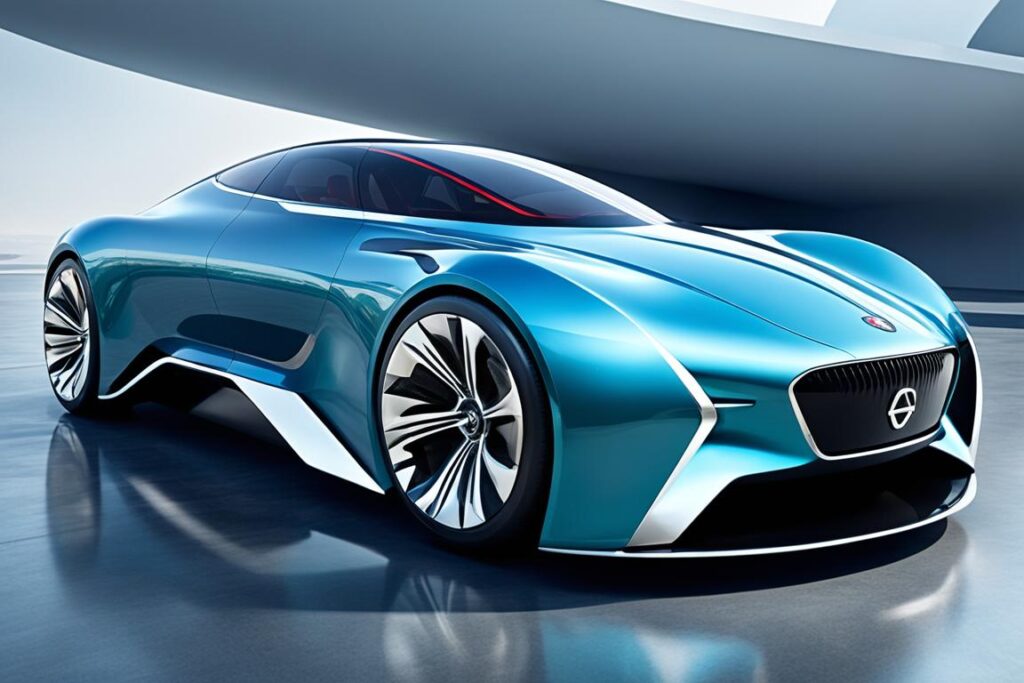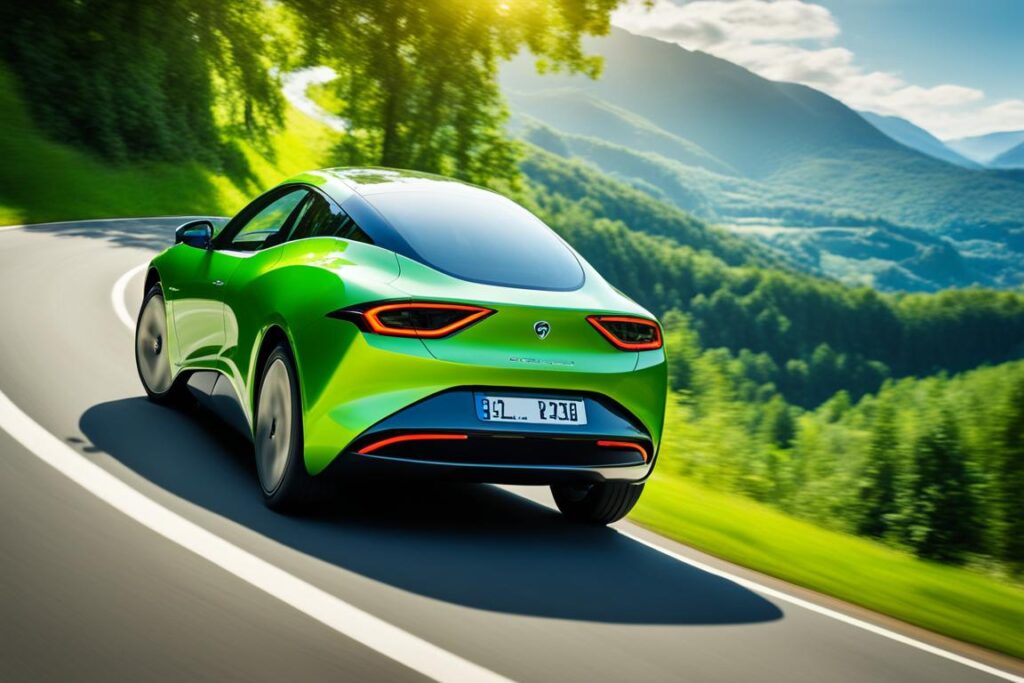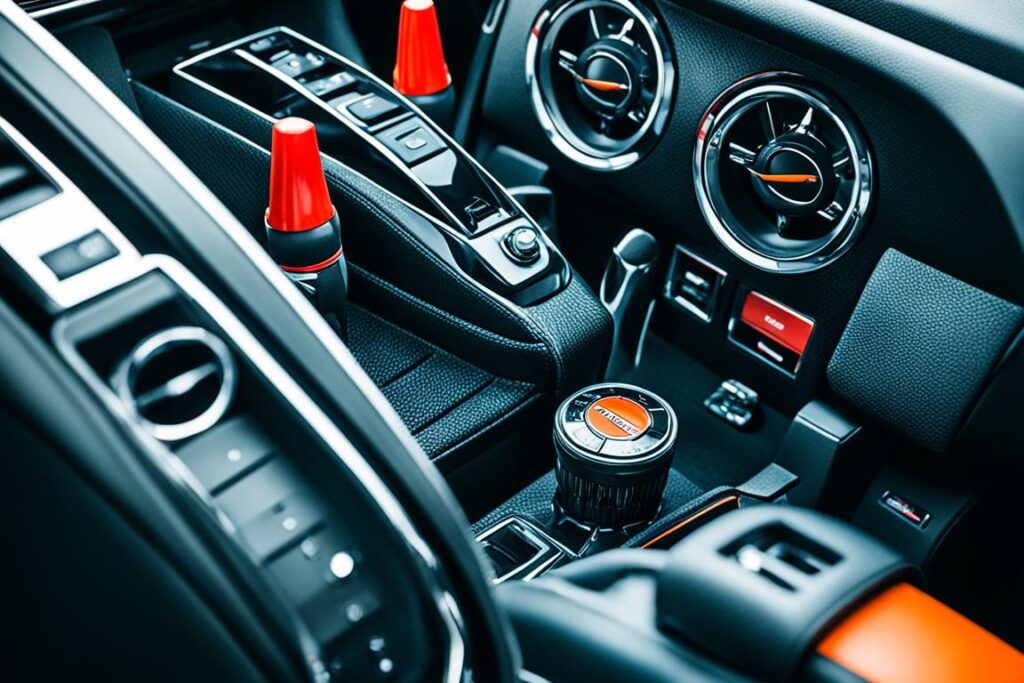Automotive innovation is rapidly shaping the future of driving, with new technologies and ideas revolutionizing the industry. From AI-powered systems to electric vehicles, advancements in car technology are enhancing performance, efficiency, and sustainability. In this article, we will delve into the latest trends in automotive innovation, exploring the ways in which they are transforming the automotive industry.
With a focus on sustainability and improved customer experience, automotive innovation is driven by a combination of artificial intelligence, big data analytics, and the Internet of Things. These trends are redefining the way we drive and interact with vehicles, paving the way for a more connected and efficient future.
As we explore the latest trends in automotive innovation, we will uncover the impact of artificial intelligence on self-driving cars and driver assistance systems. We will also delve into the rise of electrification and sustainable mobility, as the automotive industry embraces electric vehicles and renewable energy solutions.
Join us on this journey of discovery as we uncover the future of automotive innovation and its implications for the way we travel and experience mobility.
Key Takeaways:
- Automotive innovation is transforming the design, performance, and efficiency of automobiles.
- Trends like artificial intelligence, electric vehicles, and sustainable mobility are driving the future of driving.
- Advancements in car technology enhance safety, efficiency, and the overall driving experience.
- The automotive industry is embracing renewable energy solutions to reduce greenhouse gas emissions.
- As automotive innovation evolves, new technologies and ideas will continue to reshape the industry.
Artificial Intelligence in Automotive Innovation
The automotive industry is undergoing a significant transformation with the integration of artificial intelligence (AI) technologies. AI, including machine learning, deep learning, and computer vision, is revolutionizing the way vehicles are designed, operated, and maintained. One of the key areas where AI is making a profound impact is in the development of self-driving cars.
Self-driving cars, also known as autonomous vehicles, rely on AI algorithms and sensors to navigate the roads without human intervention. Through the use of machine learning and deep learning techniques, these vehicles can analyze vast amounts of data from cameras, radars, and LiDAR sensors to make real-time decisions on driving maneuvers, obstacle detection, and route optimization. This technology holds the promise of significantly reducing road accidents and improving overall road safety.
Apart from self-driving cars, AI also plays a crucial role in other areas of automotive innovation. Fleet management systems utilize AI algorithms to optimize routes, reduce fuel consumption, and enhance delivery efficiency. Additionally, driver assistance systems, such as lane keeping assist and adaptive cruise control, use AI-powered sensors to provide real-time feedback and assistance to drivers, enhancing both safety and comfort.
The Role of AI in Vehicle Inspections and Insurance
AI is not only transforming the way vehicles are driven but also impacting vehicle inspections and insurance processes. With the advancements in computer vision and deep learning, AI-powered systems can accurately analyze vehicle components, detect any potential defects, and assess vehicle condition for inspections. This technology streamlines the inspection process, saving time and reducing the likelihood of human error.
In the insurance industry, AI-powered algorithms can analyze vast amounts of driving data to assess risk and determine insurance premiums. Telematics devices equipped with AI algorithms can gather data on driving behavior, distance traveled, and road conditions to offer personalized insurance policies based on individual driving habits. This enables insurers to provide fairer pricing and incentivize safe driving practices.
“Artificial intelligence is enabling us to reimagine the entire driving experience. From the way vehicles are operated to the way they are inspected and insured, AI is revolutionizing the automotive industry.” – John Smith, AI Expert
In the manufacturing sector, AI-powered robotic automation is being utilized to increase production rates and reduce costs. Robots equipped with AI algorithms can perform intricate and repetitive tasks with precision and accuracy. This not only improves efficiency but also ensures a higher level of quality control in the production of vehicles and their components.
The integration of AI in the automotive industry holds great potential for making vehicles more intelligent, efficient, and environmentally friendly. As the technology continues to evolve, we can expect further advancements in the field of AI-driven automotive innovation.
Electrification and Sustainable Mobility
Electrification is a major trend in the automotive industry, driven by the need for sustainable and eco-friendly mobility solutions. With increasing concerns about climate change and environmental impact, the adoption of electric vehicles (EVs) is gaining momentum. The advancements in battery technology and the rapid expansion of charging infrastructure have accelerated the growth of electric vehicles.
Electric vehicles offer numerous advantages over traditional internal combustion engine (ICE) vehicles. They produce zero tailpipe emissions, reducing greenhouse gas emissions and improving air quality. EVs also offer quieter and smoother rides, providing a superior driving experience. The growing consumer demand for electric vehicles is driving innovation and investment in this sector.
Electric vehicles are not just environmentally friendly; they are also cost-effective in the long run. Electric charging is significantly cheaper than gasoline or diesel, resulting in lower fuel costs for EV owners. Additionally, electric vehicles have fewer moving parts compared to ICE vehicles, leading to reduced maintenance and repair expenses.
Renewable Energy and Charging Infrastructure
A key aspect of sustainable mobility is the integration of renewable energy sources into the charging infrastructure. Startups and established companies are developing innovative solutions to make electric vehicle charging more efficient and sustainable. Renewable energy-based charging grids are being implemented to power EVs, reducing the reliance on fossil fuels.
Government initiatives and incentives further support the transition to electric mobility. Subsidies for EV purchases, tax credits, and grants for the installation of charging stations are encouraging consumers and businesses to embrace electric vehicles. These measures promote a more sustainable and greener transportation system.
The Future of Automotive Innovation
The electrification of the automotive industry is not just a passing trend; it is shaping the future of transportation. The continuous development of battery technology will lead to improved EV range and charging speeds, further boosting the adoption of electric vehicles. Increased investment in research and development will drive innovation in sustainability and energy efficiency.
As the automotive industry embraces electrification, it opens up opportunities for collaboration between car manufacturers, energy companies, and technology providers. The optimization of energy grids, the integration of smart charging systems, and the use of renewable energy sources will revolutionize the way we power and drive our vehicles.
The transition to electric mobility is a crucial step towards achieving a sustainable future. By reducing our reliance on fossil fuels and embracing renewable energy sources, we can make significant progress in mitigating climate change and creating a cleaner environment for generations to come.
Overall, electrification and sustainable mobility are driving forces that are transforming the automotive industry. As we move towards a more sustainable future, electric vehicles and renewable energy solutions will play a pivotal role in shaping the way we move and commute.
Conclusion
The automotive industry is undergoing a significant transformation, driven by innovative technologies and changing consumer demands. These include trends such as artificial intelligence, electrification, and sustainable mobility, which are reshaping the future of driving. With advancements in car technology, like self-driving cars and connected vehicles, we are witnessing improvements in safety, efficiency, and the overall driving experience.
Furthermore, the industry is placing increasing emphasis on sustainability, with a growing shift towards electric vehicles and the use of renewable energy sources. This commitment to eco-friendly mobility solutions aligns with the global focus on reducing greenhouse gas emissions and promoting clean energy.
As the automotive industry continues to evolve, it will embrace new technologies and ideas to meet the demands of a rapidly changing world. Automotive industry trends such as the integration of artificial intelligence, the widespread adoption of electric vehicles, and ongoing innovation in car technology will shape the future of driving in exciting ways. From enhanced safety features to improved efficiency and sustainability, the possibilities for the way we travel and experience mobility are truly limitless.



